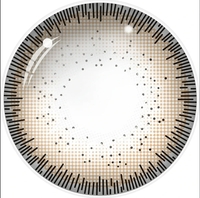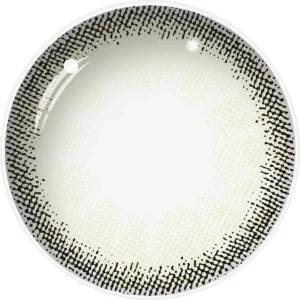
Quanzhou Howfun IMP & EXP Trading Co., Ltd. » Notes » How do you know if gray colored contact lenses fit properly?

-
How do you know if gray colored contact lenses fit properly?
Posted by sino seo - Category: Technology - 37 views - 0 comments - 0 likes - #gray colored contact lensesEnsuring that gray colored contact lenses fit properly is crucial for maintaining eye health and comfort.
Here are some signs to look for to determine if your gray colored contact lenses fit properly:-
Comfort: Properly fitting contact lenses should feel comfortable on your eyes. If you experience any discomfort, irritation, or pain while wearing your gray colored contact lenses, it could be a sign that they are not fitting correctly.
-
Vision Clarity: Your vision should be clear and crisp when wearing properly fitting contact lenses. If you notice any blurriness, distortion, or changes in vision quality, it may indicate an improper fit.
-
Movement: Gray colored contact lenses should move slightly with each blink but should not shift excessively or feel loose on your eyes. If you feel like the lenses are moving too much or if they slide out of place easily, they may not be the right fit for your eyes.
-
Centering: The lenses should be centered on your eyes when you look straight ahead. If you notice that the lenses are consistently off-center or if they move around excessively, it could indicate a poor fit.
-
Comfort Throughout the Day: Pay attention to how your eyes feel throughout the day while wearing your gray colored contact lenses. If you experience increasing discomfort or dryness as the day goes on, it could be a sign of an improper fit or lens material that doesn't suit your eyes.
-
No Redness or Irritation: Properly fitting contact lenses should not cause redness, irritation, or inflammation of the eyes. If you notice any of these symptoms, remove the lenses immediately and consult an eye care professional.
-
Ease of Removal: Removing your gray colored contact lenses should be relatively easy and pain-free. If you struggle to remove the lenses or if they feel stuck to your eyes, they may not be fitting properly.
If you experience any of these signs or symptoms, it's essential to stop wearing your gray colored contact lenses and consult an eye care professional. They can assess the fit of the lenses and recommend adjustments or alternative options to ensure your eye health and comfort.
How do black colored contact lenses compare to cosmetic eye surgery?Black colored contact lenses and cosmetic eye surgery serve different purposes and have distinct advantages and considerations:
-
Purpose:
- Black Colored Contact Lenses: These are primarily used for cosmetic purposes to change the appearance of the eyes. They can create various effects, such as enlarging the appearance of the iris or creating a dramatic look for theatrical performances, cosplay, or special events. They do not correct vision but solely alter the appearance of the eyes.
- Cosmetic Eye Surgery: Procedures like iris implants or laser eye surgery (such as LASIK or PRK) are performed to correct vision or alter the appearance of the eyes permanently. Cosmetic eye surgery can correct refractive errors (such as nearsightedness, farsightedness, or astigmatism) and may also change the color or shape of the iris.
-
Duration of Effect:
- Black Colored Contact Lenses: The effect of black colored contact lenses is temporary and reversible. They can be easily removed, allowing the wearer to change their eye color as desired.
- Cosmetic Eye Surgery: Cosmetic eye surgery provides a permanent change to the eyes. Once the procedure is performed, the alterations to vision or appearance are typically permanent, although additional surgeries may be required for further adjustments.
-
Risk and Safety:
- Black Colored Contact Lenses: When used properly and obtained from a reputable source, colored contact lenses are generally safe. However, improper use, poor hygiene, or wearing lenses that do not fit properly can increase the risk of eye irritation, infection, or other complications.
- Cosmetic Eye Surgery: Like any surgical procedure, cosmetic eye surgery carries risks, including infection, dry eyes, glare, halos, or overcorrection/undercorrection of vision. It requires thorough evaluation by an eye care professional and careful consideration of potential risks and benefits.
-
Cost:
- Black Colored Contact Lenses: Colored contact lenses are typically more affordable than cosmetic eye surgery. They are available in a wide range of prices depending on factors such as brand, design, and quality.
- Cosmetic Eye Surgery: Cosmetic eye surgery can be expensive, with costs varying depending on the specific procedure and the provider. Insurance may not cover elective cosmetic procedures like iris implants.
-
Reversibility:
- Black Colored Contact Lenses: The effect of colored contact lenses is reversible. Simply removing the lenses restores the natural appearance of the eyes.
- Cosmetic Eye Surgery: While some aspects of cosmetic eye surgery may be reversible or adjustable, such as enhancements or corrections, the changes made to the eyes are generally permanent.
In summary, black colored contact lenses provide a temporary and reversible way to alter the appearance of the eyes for cosmetic purposes. Cosmetic eye surgery, on the other hand, offers permanent changes to vision or eye appearance but involves more significant risks and considerations. The choice between the two options depends on individual preferences, needs, and willingness to undergo surgical procedures. Consulting with an eye care professional is essential for making informed decisions about eye health and cosmetic enhancements.

-







